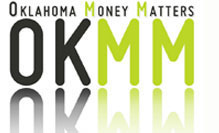Adult Learners
Identity Theft Protection
ID theft happens when someone uses your personal information (name, Social Security number (SSN), credit card number, etc.) without your permission to commit fraud. It can take a lot of time and effort to repair the damage, so it’s important to take special precautions to protect your personal information.
Online
 Guard your information. Don’t provide personal information online or via email unless you initiate the inquiry. Banks and credit card companies don’t ask customers to verify account information by email.
Guard your information. Don’t provide personal information online or via email unless you initiate the inquiry. Banks and credit card companies don’t ask customers to verify account information by email. - Don't take the bait. Phishing is when someone tries to get your sensitive information by pretending to be a trustworthy company or organization. This is often done through fake emails and websites that pressure you into giving up different kinds of information. The consequences can be serious, with identity theft being one of the worst outcomes.
- Create strong passwords. Create hard-to-break passwords for all your accounts. Choose long passwords with a mix of characters and numbers (at least 12-16 characters) that would be hard to guess and avoid using your birth date, name or phone number. Check the security of your password by using Security.org.
- Check your credit report. Visit AnnualCreditReport.com annually to get your free report from each of the three major consumer reporting agencies.
In-Person
- Keep documents safe. Store personal papers - like your birth certificate, Social Security card, loan information and insurance policies — in a fire-proof lockbox, gun safe or other secure location.
- Shred unnecessary documents. Destroy all unnecessary documents that contain personal information using a cross cut paper shredder.
- Protect your SSN. If you’re asked to give your SSN in a public setting, try to avoid providing it verbally. Instead, write it down on a piece of paper and shred it later. Or better yet, type it on your cell phone and then erase it when finished. It’s not a good idea to carry your Social Security card in your purse or wallet.
- Stop junk mail. Opt out of receiving pre-approved credit and insurance offers by calling 888.567.8688 or visiting OptOutPrescreen.com, a service run by the consumer reporting agencies.
- Go paperless. Switch to online bill payment methods. This helps eliminate your paper trail and provides 24-hour access to monitor your account activity and respond faster to fraudulent charges.
Already a Victim?
If you’re a victim of identity theft, act fast.
- Check your credit reports for fraudulent activity.
- Place a fraud alert on your credit reports so new accounts can’t be opened in your name.
- Close the accounts that have been tampered with or opened without your authorization.
- File a complaint with the Federal Trade Commission.
- File a police report.
For detailed information about each step, visit IdentityTheft.gov.


